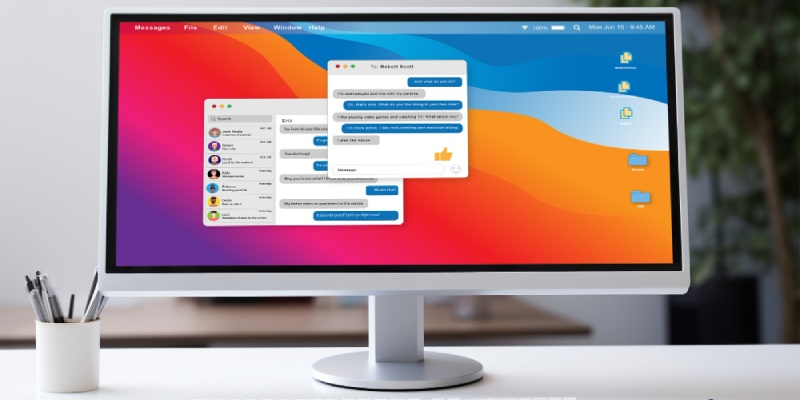In the ever-evolving world of web development, Single Page Applications (SPAs) have gained significant popularity. SPAs are a modern approach to web application development that provides a seamless and interactive user experience. However, like any technology, SPAs have their own set of advantages and disadvantages. In this article, we will explore the Advantages and Disadvantages of Single Page Applications.
Table of Content
ToggleWhat is a Single Page Application (SPA)?
A Single Page Application (SPA) is a type of web application that loads all the necessary resources, such as HTML, CSS, and JavaScript, on a single web page. Unlike traditional multi-page applications, SPAs interact with the server through API calls, fetching and updating data asynchronously. The main advantage of SPAs is that they can update specific sections of the page without reloading the entire page, resulting in a faster and more seamless user experience.
Advantages of Single Page Applications

Here you can check nine notable Advantages of Single Page Applications.
Enhanced User Experience
One of the primary advantages of SPAs is the enhanced user experience they offer. With SPAs, users can navigate through the application without experiencing page refreshes, resulting in a smoother and more fluid interaction. This seamless experience is achieved by leveraging JavaScript frameworks like React, Angular, or Vue.js, which handle the dynamic rendering of content on the client side.
Faster and Smoother Navigation
Improved Performance

Offline Functionality
SPAs can leverage technologies like Service Workers to provide offline functionality. By caching critical resources, such as HTML, CSS, and JavaScript files, SPAs can continue to function even when the user’s device is offline or experiencing a weak network connection. This feature is particularly beneficial for applications that need to work reliably in unpredictable network conditions.
Easy Maintenance and Updates
Flexibility in UI Design
Seamless Integration with APIs
SPAs can seamlessly integrate with APIs (Application Programming Interfaces), enabling efficient data retrieval and manipulation. By leveraging APIs, SPAs can fetch data asynchronously, update the interface in real time, and provide a more interactive user experience.
Enhanced Security
Mobile-Friendly Experience

Disadvantages of Single Page Applications
Initial Loading Time
One of the primary disadvantages of SPAs is the potentially longer initial loading time. Since the entire application needs to be loaded upfront, including all the JavaScript frameworks and dependencies, the initial page load can take longer compared to traditional websites. This delay may lead to a higher bounce rate if users have slow internet connections or limited bandwidth.
Search Engine Optimization Challenges
Browser Compatibility
SPAs can face browser compatibility issues due to varying levels of JavaScript support across different browsers and versions. While modern browsers provide comprehensive JavaScript support, older browsers may have limitations or display inconsistencies. Developers need to ensure cross-browser compatibility by employing polyfills or graceful degradation techniques, which can increase development time and complexity.
Lack of Back Button Support
Increased Memory Usage
SPAs rely heavily on client-side JavaScript execution, which can result in increased memory usage compared to traditional websites. As the complexity of the application grows, so does the memory footprint. This can be a concern for devices with limited resources, such as mobile devices, and may lead to performance issues if not managed carefully.
JavaScript Dependence
SPAs heavily rely on JavaScript to function properly. If a user has disabled JavaScript in their browser or is using an older browser with limited JavaScript support, the SPA may not function as intended or fail to load altogether. This dependence on JavaScript can limit the accessibility of the application.
Development Complexity
Developing SPAs requires a deeper understanding of JavaScript frameworks and their associated technologies. The complexity involved in setting up the development environment, managing the state, and handling client-side routing can increase the learning curve for developers and potentially lead to longer development timelines.
Dependency on Client-Side Resources
Since SPAs rely on client-side resources to render content and handle interactions, any issues with the user’s device or browser settings can impact the application’s performance. Incompatibilities, JavaScript errors, or limitations in client-side resources can lead to suboptimal user experiences or even application crashes.
These additional advantages and disadvantages provide a more comprehensive understanding of the benefits and considerations associated with Single Page Applications.
Conclusion
We have covered a depth guide on the Advantages and Disadvantages of Single Page Applications. Single Page Applications offer a range of advantages, including enhanced user experience, faster navigation, improved performance, offline functionality, and easier maintenance and updates. However, they also come with disadvantages such as longer initial loading time, SEO challenges, browser compatibility issues, lack of back button support, and increased memory usage. When deciding whether to use a SPA for a particular project, it is essential to carefully evaluate the specific requirements and consider the trade-offs involved.
FAQs
Some popular examples of single page applications include Google Maps, Airbnb, Netflix, Pinterest, Paypal, and many more.
SPAs are well-suited for applications that require high interactivity, real-time updates, and a seamless user experience. However, for content-driven websites or websites that rely heavily on search engine visibility, traditional multi-page applications may be a better choice.
To optimize a SPA for search engines, you can consider implementing server-side rendering (SSR) or prerendering techniques to provide HTML snapshots that search engine crawlers can easily parse and index. Additionally, ensuring proper metadata, using descriptive URLs, and implementing structured data can also improve SEO for SPAs.
No, SPAs heavily rely on JavaScript to handle dynamic content rendering and user interactions. Disabling JavaScript in the browser will result in a degraded or non-functional experience for SPAs.
Some best practices for developing SPAs include optimizing initial loading time, implementing efficient data fetching and caching strategies, ensuring proper navigation and history management, maintaining cross-browser compatibility, and prioritizing performance optimizations to deliver a smooth user experience.